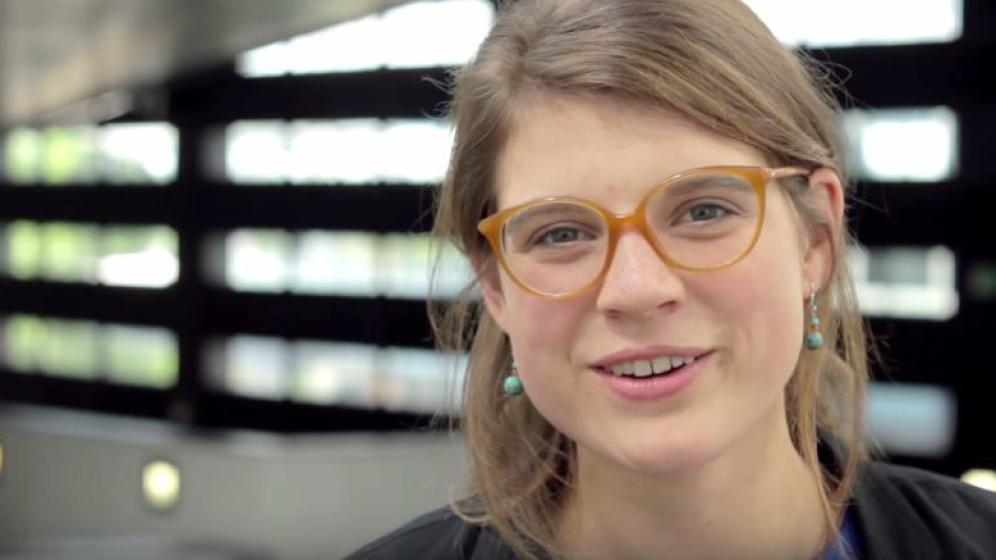Last year, Delfina Rossi was a first year student at the LBJ School of Public Affairs. She came to the program with a Masters in Economics from the European University Institute, and previous work experience in the European Parliament. After finishing her first year at the LBJ School, Delfina accepted an appointment from the President of Argentina – Cristina Fernandez de Kirchner – to the position of Director at the National Bank of Argentina. The appointment makes Delfina – a 26 year old Argentine native and daughter of that country’s Defense Minister, Agustin Rossi – the youngest of her colleagues at the National Bank.
Delfina’s appointment also comes at a decisive point in Argentinian politics. The left-wing Peronist party, Front for Victory, has been in power in the country since 2003. But the right-wing Let’s Change party now threatens to upset the political order in the country’s upcoming presidential election. The Let’s Change party is led by Mauricio Macri, whose recent rise to challenger status against the established Front for Victory candidate Daniel Scioli is largely a surprise, and has forced the country’s first ever runoff election. That runoff will occur on November 22, and the showdown between Scioli and Macri will have important implications for Delfina, the National Bank, and the nation at large.
We sat down with Delfina to get her perspective on the work she does, the upcoming Argentinian presidential elections, and how she has dealt with criticisms that her appointment is the product of nepotism. Check out the interview below.
[soundcloud url=”https://api.soundcloud.com/tracks/233221597″ params=”auto_play=false&hide_related=false&show_comments=true&show_user=true&show_reposts=false&visual=true” width=”100%” height=”450″ iframe=”true” /]
Interview highlights:
(0:10) For those of us who are unfamiliar with the Argentinian government, can you tell us a little bit about your new position and the organization you work for?
(1:10) What was it like transitioning from grad student to public figure in Argentina?
(1:50) If the opposition party led by Mauricio Macri wins the upcoming presidential election in November, would you still want to work at the National Bank?
(3:10) How do you think policies at the National Bank would change if the opposition party wins?
(6:40) Some of your critics label your assignment to your position at the National Bank as nepotism. They claim that the political connections of your father (Agustin Rossi) in Argentina are the reason for your appointment and that you are in reality unprepared. How do you respond to that?
(8:50) Have you been able to apply what you learned at the LBJ school to your work in the bank?
(9:55) What would you say to LBJ students considering work in international politics?
(10:25) Do you eventually see yourself running for an elected office in Argentina?
Correction: An earlier version of this article implied that the Republican Proposal (PRO) party would be on the ballot in the runoff elections. In fact, Macri will be on the runoff through the Let’s Change party.

